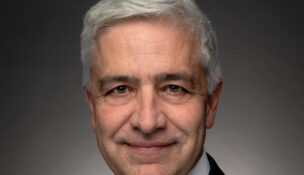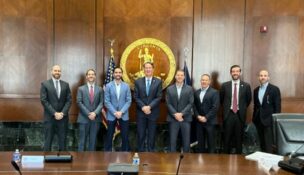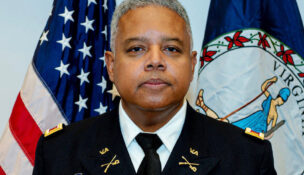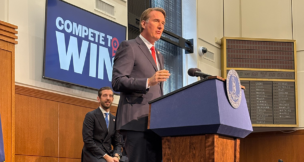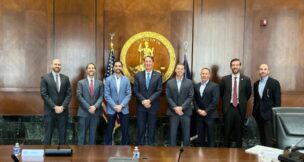JLARC calls for governing changes at VCU Health
Study comes in the wake of $80M payout
Beth JoJack //June 5, 2024//

Part of Virginia Commonwealth University's campus. Photo courtesy VCU.

Part of Virginia Commonwealth University's campus. Photo courtesy VCU.
JLARC calls for governing changes at VCU Health
Study comes in the wake of $80M payout
Beth JoJack //June 5, 2024//
After a failed development deal and a nearly $80 million payout, VCU Health needs to change the way it is governed, the Virginia General Assembly‘s investigative body declared Wednesday. Virginia Commonwealth University‘s president has too much room to influence the health system’s operations, the Joint Legislative Audit & Review Commission (JLARC) found.
State lawmakers directed JLARC to review VCU Health’s governance and capital process last fall, after news broke in spring 2023 that the Richmond health system was planning to pay developers $72.9 million to back out of a $325 million downtown development project with higher costs than the university had anticipated.
Known as the Clay Street Project, VCU planned to build a medical office tower and a multiuse project at the site of the City of Richmond-owned Public Safety Building at 10th and Clay streets. Ultimately, VCU paid about $5 million to demolish the Public Safety Building in a promise to the city — bringing the university’s costs to nearly $80 million.
Additionally, the health system is on the hook to the City of Richmond for about $56 million it agreed to pay the city in lieu of taxes. That is to be paid in $2.5 million installments annually, according to JLARC.
To date, the VCU Health System has paid $1.9 million in fees to the city in lieu of taxes, according to a spokesperson for the health system.
State lawmakers have directed the VCU Health System to “pursue to terminate payments” to Richmond of these fees. A request for comment to Richmond officials was not immediately returned.
VCU President Michael Rao came under heavy criticism over the misstep, including calls from former Gov. Doug Wilder to resign after news of the payout broke in 2023.
The failed project also led to the abrupt November 2022 resignation of former VCU Health CEO Dr. Art Kellermann, who had tried in 2021 to convince Rao and other VCU administrators to not enter into the deal, citing outsize costs to VCU Health, which developers anticipated would pay $650 million over 25 years to lease the office tower. A slideshow presented Wednesday noted that Rao’s cabinet had “strongly advised” Kellermann to sign the lease for the Clay Street development, despite his stated concerns.
Kellermann left his post in 2022 after Rao asked him to resign, and Dr. Marlon Levy became interim CEO of VCU Health and interim senior vice president of VCU Health Sciences, positions he still holds.
Changes in leadership structure
In addition to leading VCU, Rao is president and board chair of the VCU Health System, which generated more than $3 billion in operating revenue in fiscal 2023. During a lengthy presentation Wednesday, Chief Legislative Analyst Lauren Axselle reported that JLARC’s team found that VCU Health “improved its capital process following the Clay Street project but needs to develop a long-term strategic capital plan, strengthen several policies and increase staffing to effectively handle capital projects.”
What’s more, the health system’s leadership structure needs to be changed to “reduce the potential for the VCU president … to have too much influence on [health system] operations and decisions and ensure that the [VCU Health] CEO’s principal focus is on the health system’s strategic planning and operations.”
Five individuals serve on both the health system’s board of directors and VCU’s Board of Visitors, according to JLARC, which found that although collaboration between VCU and VCU Health is beneficial, the two entities would benefit from “a greater number of impartial board members.”
Virginia’s lawmakers could consider amending the health system’s bylaws to eliminate the position of president at the health system and make the CEO its top executive, according to Axselle. Members of the General Assembly could also amend state code to limit the role of VCU’s president on the health system’s board of directors so that the VCU president is a nonvoting member on the board and not eligible to serve as board chair.
Additionally, the health system’s CEO post and VCU’s senior vice president of health sciences role would be held by two people if JLARC’s recommendations are followed.
Other possible changes
Virginia’s lawmakers could also look at changing the code to require the health system to elect a chair every two years and mandate that the chair cannot sit on VCU’s Board of Visitors and can’t be a health system or VCU employee, according to JLARC. Additionally, the agency recommends that General Assembly members consider giving four-year terms, instead of three-year stints, to members of the health system’s board of directors. Lawmakers also could add “commercial real estate” and “finance” to existing expertise requirements for individuals selected for the board.
VCU Health staff should develop a 10-year strategic capital plan for the board to consider, according to JLARC. Additionally, JLARC noted that hiring outside experts can reduce risk on capital projects. VCU Health did not hire a site consultant for the Clay Street project and only hired outside legal counsel after the board approved the project, according to JLARC.
Additionally, the health system needs to have “director-level positions overseeing construction and real estate functions” that report to an executive of the health system. VCU Health also needs to develop staffing capacity “to effectively plan, procure and manage future capital projects,” JLARC’s study states.
VCU Health has filled a vacant director of construction project management position and created a director of real estate position, according to JLARC.
Rao briefly spoke to the commission, noting that he has publicly supported updating the role of the VCU president and VCU Health System board chair.
As for the failed Clay Street project, Rao noted that in July 2021 the health system’s chief legal officer and chief financial officer positions became vacant around the same time. He stated he “asked the former VCU Health CEO to work with available university leadership.”
Even so, Rao said, “the buck stops with me as chair of the health system.”
i



